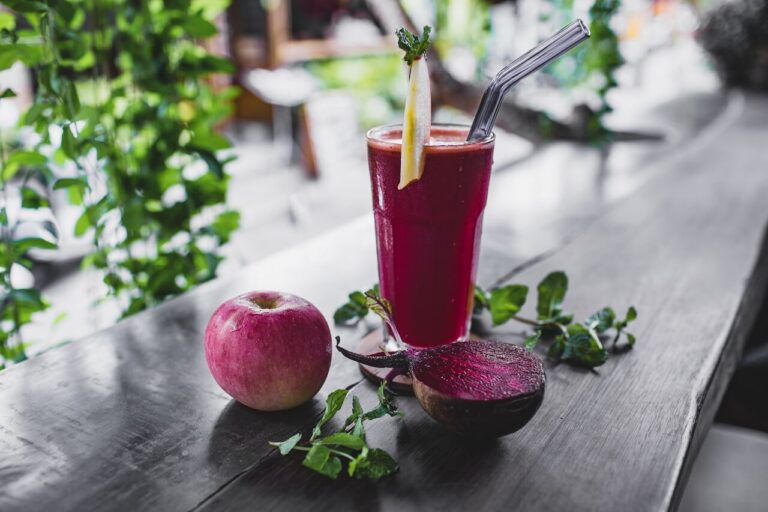
Introduction
Another essential macronutrient that our bodies require is protein, particularly in those who are physically active. But as plant-based diets gain popularity, there is a growing debate on Plant Protein vs. Animal Protein: What’s Better? Let’s explore this article along with some of both their benefits and drawbacks.
Table of Contents
What is Protein?
Let’s define protein before we go into the discussion. Along with carbohydrates and fats, protein is one of the three macronutrients that our body requires in significant amounts to function effectively. Amino acids, the building blocks of our bodies, are found in protein.
There are 20 different types of amino acids, nine of which are essential, meaning our body can’t produce them, and we need to get them from what we eat or supplement. We need protein for good health. Making enzymes and hormones, healing tissues, and maintaining healthy bones and muscles are all benefits of protein. Additionally, it supports healthy weight maintenance and a strong immune system.
The Rise of Plant-Based Diets
The adoption of plant-based diets has risen substantially during the past few years. Given several reasons, including health, environmental, and ethical considerations, people are shifting away from meat-heavy diets. The Vegan Society undertook a survey, which revealed that there have been 4 times as many vegans in the UK as there were 4 years prior. There has also been an additional number of animal protein vs plant protein studies conducted highlighting the benefits.
Diets that are plant-based or vegan tend to avoid or place restrictions on animal items like meat, dairy, and eggs, rather eating a range of plant foods like fruits, vegetables, whole grains, nuts, and seeds. As this kind of diet is high in fiber, vitamins, minerals, and antioxidants it has been linked to a lower risk of chronic diseases like heart disease and diabetes.
The Debate: Plant Protein Vs. Animal Protein: What’s Better?
Let’s get to the point: which type of protein—plant or animal—is preferable? Like most nutrition-related queries, the solution is not simple. Depending on several variables, including your dietary requirements, tastes, and lifestyle, both plant-based and animal proteins offer advantages and disadvantages.
Let’s have a look at some Pros and Cons:
Plant Protein Pros:
- Nutrient-Dense: Plant-based protein sources often come packed with essential nutrients such as fiber, vitamins, minerals, and antioxidants, which contribute to overall health and well-being.
- Reduced Saturated Fat and Cholesterol: Plant protein sources are generally lower in saturated fat and cholesterol compared to animal protein, making them a healthier choice for cardiovascular health.
- Environmental Sustainability: Plant-based protein production has a lower environmental impact, as it requires fewer resources, produces fewer greenhouse gas emissions, and contributes to biodiversity conservation.
Plant Protein Cons:
- Incomplete Amino Acid Profile: Most plant proteins lack one or more essential amino acids, which are the building blocks of protein. However, by consuming a varied plant-based diet, it is possible to obtain all essential amino acids.
- Lower Protein Density: Plant-based protein sources typically have a lower protein content per serving compared to animal protein sources. This means that larger quantities or combinations of different plant protein sources may be needed to meet protein requirements.
- Digestibility and Absorption: Some plant proteins may be less easily digested and absorbed by the body compared to animal proteins. However, cooking, fermenting, or pairing plant proteins with complementary sources can enhance their digestibility.
Animal Protein Pros:
- Complete Amino Acid Profile: Animal proteins generally contain all essential amino acids in the right proportions, making them a complete protein source that can readily fulfill the body’s protein needs.
- High Protein Density: Animal-based protein sources tend to be more protein-dense, meaning smaller quantities are needed to reach recommended protein intake levels.
- Higher Biological Value: Animal proteins offer biological value, supplying a higher proportion of usable amino acids.
Animal Protein Cons:
- Saturated Fat and Cholesterol: Animal protein sources, especially those high in fat, can contribute to elevated saturated fat and cholesterol intake, which may increase the risk of cardiovascular diseases and other health issues.
- Environmental Impact: Animal agriculture is associated with significant environmental challenges, including deforestation, water pollution, greenhouse gas emissions, and animal welfare concerns.
- Potential Health Risks: Some studies have linked high consumption of certain animal protein sources, such as processed meats, to an increased risk of certain diseases, including certain cancers and cardiovascular diseases.
Ultimately, the choice between plant protein and animal protein depends on individual preferences, dietary needs, and ethical considerations. It is possible to obtain adequate protein from both sources by following a balanced and varied diet.

Plant Protein: A Nutritional Powerhouse
Vegetable proteins have collected significant interest in the past few years owing to their nutritional advantages. In contrast to animal protein, which is frequently high in saturated fat and cholesterol, vegetable protein has a low-fat content and is devoid of cholesterol. Vegetable protein sources are also rich in fiber, vitamins, and minerals, which are crucial for maintaining good health.
Animal Protein: The Drawbacks
Sources of protein from animals are frequently linked with a greater ecological footprint, as they necessitate more resources for their production compared to protein sources from plants. Also, an excessive intake of animal protein can result in the overconsumption of specific nutrients like iron and vitamin A, which can be detrimental in excessive quantities.
Debunking Common Myths about Plant Protein
You may have seen a meme or heard some myths about plant-based proteins, so let’s take a look at a few:
Myth 1: Plant Protein is Incomplete
As previously mentioned earlier in this article, this is only somewhat true. Although some plant-based protein sources are lower in certain amino acids, the majority of plants, fruits, herbs, and nuts contain all the essential amino acids in varying amounts. Additionally, by combining a diverse range of plant protein sources, you can easily get all the main amino acids your temple needs to function optimally. For example, combining beans with rice or quinoa can create a complete protein source. Similarly, combining nuts or seeds with legumes can also create a complete protein source. So, is plant protein healthier than animal protein? I may be biased but I would say Yes.
Myth 2: Plant Protein Lacks Essential Nutrients
I would have to say this misconception is false because plant-derived proteins can be rich in fiber, vitamins, and minerals which overall aid good health. Additionally, a plethora of plant foods have phytochemicals, which are compounds that have antioxidant and anti-inflammatory properties that help defend against chronic diseases.
Myth 3: Animal Protein is Superior for Muscle Building
Not necessarily, because while animal protein is often advertised as superior for muscle building, several studies have shown that plant protein can be just as effective. Additionally, plant protein sources are often lower in fat and calories than animal protein sources, which can help with weight management.

Plant Protein Supplements for Convenience and Versatility
If you’re seeking a convenient and versatile method to incorporate more plant-based protein into your diet, consider exploring the realm of plant protein supplements. These supplements are typically derived from plant sources like soy, pea, rice, or seed, and are available in various forms such as powders, bars, and shakes.
Plant protein supplements can be particularly beneficial for athletes or individuals with elevated protein requirements who may face challenges in meeting their needs solely through whole foods. However, it’s crucial to select a high-quality supplement that is devoid of additives or fillers and offers a complete amino acid profile to ensure optimal nutrition.
Recap of Some of the Benefits of Plant Protein
- Less Suffering to Defenseless Animals
- Lower in Saturated Fat and Cholesterol than animal protein
- Nutrient-Rich: Just some protein sources, like legumes, nuts, seeds, and whole grains, are rich in protein but also packed with essential nutrients
- Rich in fiber, vitamins, minerals, and antioxidants
- Improved Digestive health due to the high fiber content
- Reduced Risk of Chronic Diseases
- Sustainable and reduces the impact on the environment
- Versatility and Variety: offering a wide range of options and versatility from legumes and tofu to quinoa and nuts, there are numerous plant-based protein sources
- Can be just as effective for muscle building as animal protein
- Plant Protein vs animal protein for building muscle is just as effective for both
Conclusion: Embracing the Power of Plant Protein
When it comes to the big question, plant protein vs. animal protein: what’s better? It just depends, honestly. Both have their pros and cons, and it depends on your nutritious needs, preferences, culture, religion, and lifestyle. Having said that, to me, it’s clear that plant protein is much better because it works for me and my vegan way of life. In addition to that, it offers numerous nutritional advantages, is sustainable, and exerts a lesser environmental impact compared to the processes involved in producing animal proteins.
If you find yourself short on time or facing challenges in including a variety of whole plant foods in your daily routine, plant protein supplements can serve as a valuable tool to quickly and conveniently boost your plant protein intake.
Check Vegan Protein Prices
Sources and References:
Worldwide growth of veganism. (n.d.). The Vegan Society. https://www.vegansociety.com/news/media/statistics/worldwide
Glick-Bauer, M., & Yeh, M. C. (2014, October 31). The Health Advantage of a Vegan Diet: Exploring the Gut Microbiota Connection. Nutrients, 6(11), 4822–4838. https://doi.org/10.3390/nu6114822
Tuso, P. J., Ismail, M. H., Ha, B. P., & Bartolotto, C. (2013, June). Nutritional Update for Physicians: Plant-Based Diets. The Permanente Journal, 17(2), 61–66. https://doi.org/10.7812/tpp/12-085
Messina, V. (2014, July). Nutritional and health benefits of dried beans. The American Journal of Clinical Nutrition, 100, 437S-442S. https://doi.org/10.3945/ajcn.113.071472
Joy, J. M., Lowery, R. P., Wilson, J. M., Purpura, M., De Souza, E. O., Wilson, S. M., Kalman, D. S., Dudeck, J. E., & Jäger, R. (2013, June 20). The effects of 8 weeks of whey or rice protein supplementation on body composition and exercise performance. Nutrition Journal, 12(1). https://doi.org/10.1186/1475-2891-12-86
Scher, MD, D. B., & Tamber, MD, D. M. (2021, July 14). Plant protein vs. animal protein: Which one is healthier for you? – Diet Doctor. Diet Doctor. https://www.dietdoctor.com/high-protein/plant-vs-animal-protein




[…] promote glucose regulation. Its ability to increase ATP production, improve cell signaling, reduce protein breakdown, and support cognitive function makes it a valuable addition to any fitness or health […]
[…] Protein is an essential nutrient for maintaining and regenerating muscle tissue, but obtaining enough of it from a plant-based diet alone can be a little challenging at times. If you want to gain muscle mass, vegan protein powders are a great method to supplement your diet with protein. Peas, rice, soy, and hemp are some of the most well-known vegan protein sources delivering excellent results. […]
[…] Plant Protein vs. Animal Protein: What’s Better? Interesting Facts […]
[…] Plant Protein vs. Animal Protein: What’s Better? Interesting Facts […]